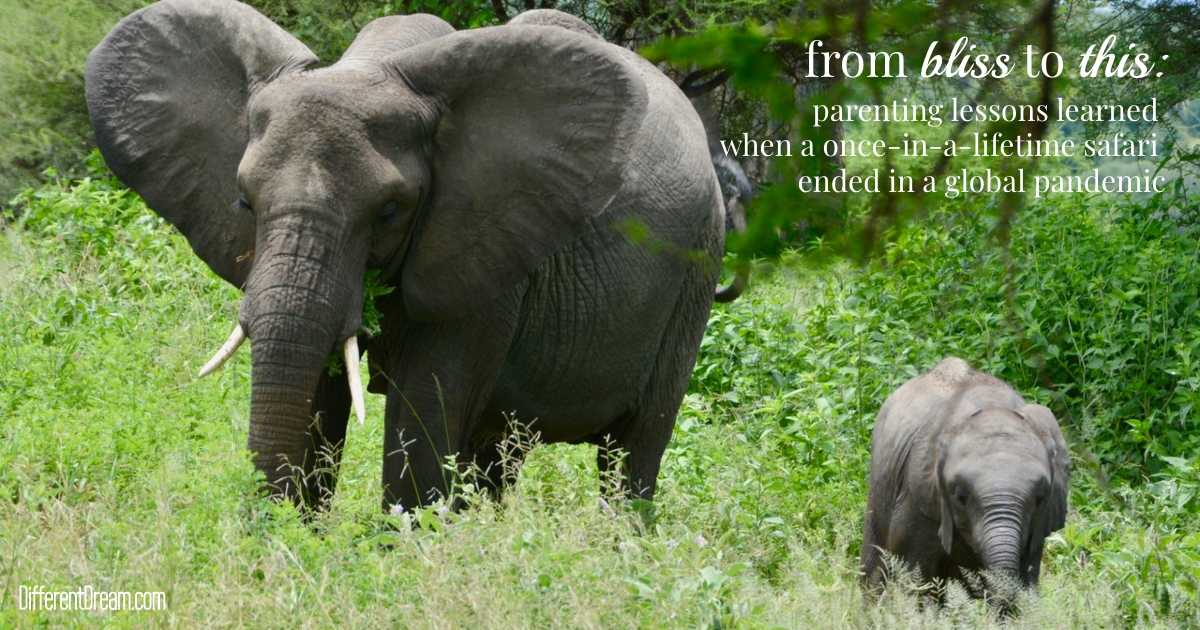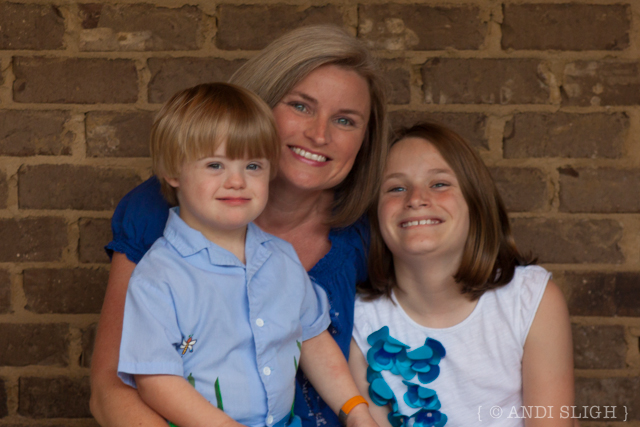Tips for Raising Kids with Disabilities and Special Needs, Part 1

Tips for raising kids with disabilities and special needs are usually the product of trial and error. But Heather Johnson, mom to three kids with special needs, discovered three tips when the COVID pandemic entered the scene on the heels of a once in a lifetime African safari. She shares one of the tips in the first post of this series and the other two in the second installment later this week.
One year ago my husband, my 87-year-old father, and I boarded a flight from Chicago for a two-week African safari in Tanzania. After a year of planning and anticipation, we were about to experience the most marvelous part of creation we had ever witnessed–except for having kids.
We saw lions, leopards, cheetahs, elephants, cape buffalo, and hippopotamus so close to our vehicle that I didn’t need my Nikon zoom lens most of the time. My iPhone 8+ took stunning photos.
On the Serengeti plain, zebras and wildebeests thundered around us on their annual migration north, braying and bellowing as they ran. Hyenas, meerkats, warthogs, and yellow-billed hornbills made The Lion King come to life.
This was bliss—as close to Eden as we could come. Far away from civilization in the African bush, we were unaware of what was thundering and spreading across the globe at a breath-taking pace, literally.
Covid-19.
We returned to a world changed suddenly and dramatically. Masks, social distancing, school and business closings, job losses, blaming, shaming, raw nerves flaring.
From bliss to this? Shocking, to say the least.
So what did an awe-inspiring African safari and a frightful Covid-19 pandemic teach parents like you and me about living with and raising kids with special needs? Here are 3 tips our family is still learning.
Tip 1: Hold hope tightly but hold expectations loosely.
As new parents, sometimes our sky-high hopes come crashing suddenly, thundering through our whole being. Such was the case when my husband and I learned, one-by-one, that all three of our kids we adopted from Russia had multiple, invisible disabilities stemming from fetal exposure to alcohol (FASD). We gave our kids every opportunity to develop. Still, the neuropsychologists weren’t quite right in their predictions.
For our daughter, 29, independent living and driving will never happen. For our oldest son, 27, a weekly caregiver helping with meal preparations, cleaning, appointment setting, and money management will always happen. For our youngest son, 22, who knows? His attempt at tech school ended with words uttered to me through sobs near the end of his first quarter. “I tried as hard as I could, but I couldn’t do it.” Now he works in a factory and is happy as can be, as are we. There’s been grief and tears, for sure. Loss is hard. But grieving losses is good, even necessary, for moving on and opening our hearts again to new possibilities.
We are happy all our kids are living lives that have caused us and others to realize an important truth—it’s not what we have or what we do that makes us happy. It’s accepting who we are and being loved no matter what that makes us happy. When we have love, we know the present is not the end.
That profound truth leads right into the second of my tips for raising kids with disabilities and special needs. I’ll share it in the second post in this short series which will become available on March 11, 2021.
Part 2 of Tips for Raising Kids with Disabilities and Special Needs
Do you like what you see at DifferentDream.com? You can receive more great content by subscribing to the monthly Different Dream newsletter and signing up for the daily RSS feed delivered to your email.
By Heather Johnson
Heather MacLaren Johnson and her husband have three kids, all five and under when adopted from Russia. Now 29, 27, and 22, all need regular help with their multiple, permanent, invisible disabilities stemming from prenatal exposure to alcohol (FASD).
Heather has B.S. in Education and a doctorate in Clinical Psychology. She is the author of Grace, Truth, & Time: Facilitating Small Groups That Thrive and has published personal essays in The Wonder Years: 40 Women Over 40 on Aging, Faith, Beauty, and Strength (Kregel Publications) and Your Story Matters: Finding, Writing, and Living the Truth of Your Life (NavPress). She’s writing a memoir about her family’s journey through hidden disabilities and mental illness to encourage others to greater intimacy with God and each other through times of desolation and lament.
Heather and her husband of 27 years live with two horses, two dogs, two barn cats, and a bunch of silk plants she just dusts. Heather writes and photographs at www.truelifewithgod.com.
Related Posts
Autism Therapy the Pinkalicious Way, Pt. 2
Autism therapy comes in many forms. Guest blogger Amy Stout shares a creative and very pink feeding therapy party her child with autism loved.
Autism Therapy the Pinkalicious Way, Pt. 1
Sensory issues often lead to the need for feeding therapy for kids with autism. This mom encouraged her child through autism therapy the Pinkalicious way.
Special Needs Parent Guilt: Let’s Talk About It
Special needs parent guilt is an all too familiar companion to many moms & dads. Guest blogger Andi Sligh has 6 ways to combat special needs parent guilt.






0 Comments